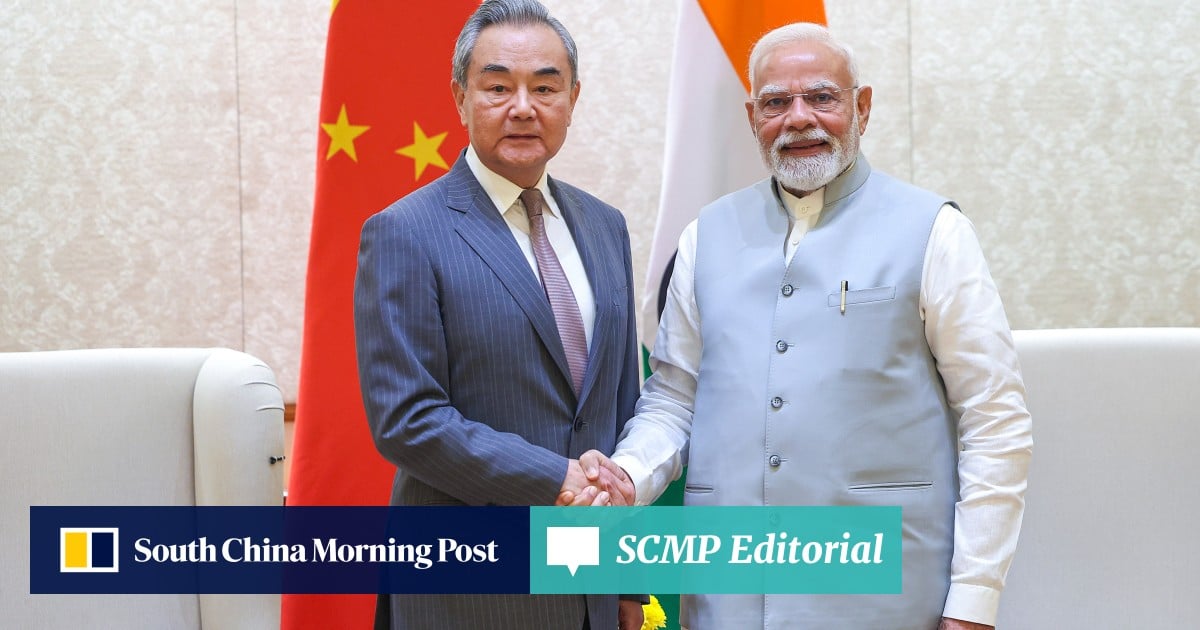India and China have come a long way towards mending ties that took a sharp turn for the worse with a deadly clash on their shared border five years ago. The nations took important steps towards restoring their relationship this week during a visit to New Delhi by Foreign Minister Wang Yi. Wang and his Indian hosts addressed urgent issues that have kept the world’s two most populous countries at odds at a critical time. Beijing and New Delhi both face a daunting trade war with the United States. That reality seems to have added urgency to the diplomatic moves.
The thaw in relations was underscored by Wang being welcomed on Tuesday by Prime Minister Narendra Modi. Bending the usual protocol reflected the importance New Delhi placed on the top diplomat’s visit and mission.
Wang conveyed personal greetings from President Xi Jinping, who last met Modi on the sidelines of October’s Brics summit in Kazan, Russia. Modi said progress towards improving ties has since been “steady” and he looked forward to seeing Xi in Shanghai. In a social media post, Modi said stable, predictable, constructive ties between India and China would “contribute significantly to regional as well as global peace and prosperity”.
The Indian leader has confirmed he will join the Shanghai Cooperation Organisation summit at the end of the month. It will be Modi’s first trip to China in seven years. Modi may also travel to Beijing for a military parade marking the end of World War II.
In New Delhi, Wang also held talks on the border dispute with Indian National Security Adviser Ajit Doval. The pair agreed to create an “expert group” to explore prioritising the settlement of disputes in less-contentious sectors.
Agreements were reached on resuming direct flights and business links. Also discussed were plans to explore trade cooperation, particularly in strategic sectors such as rare earths, people-to-people contact, the sharing of river data and connectivity.
